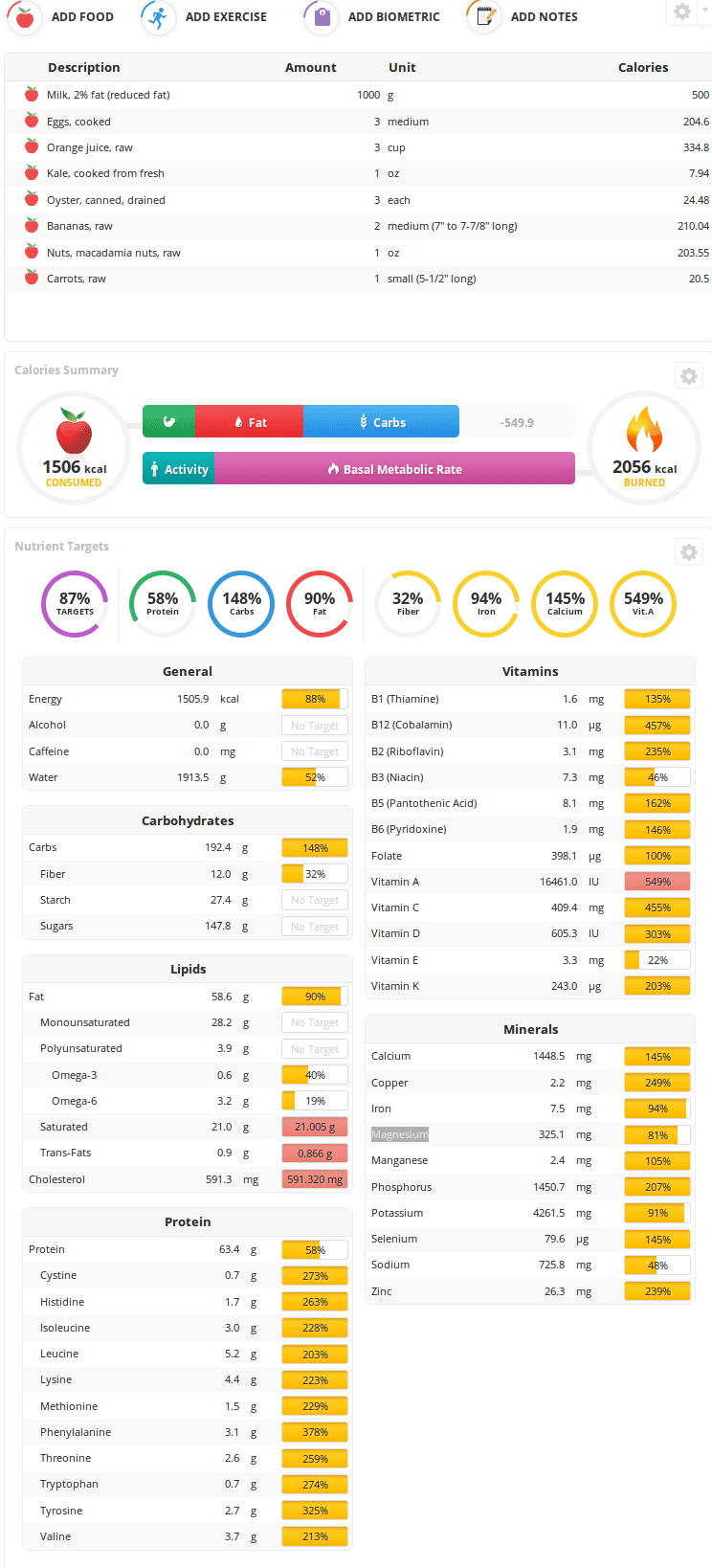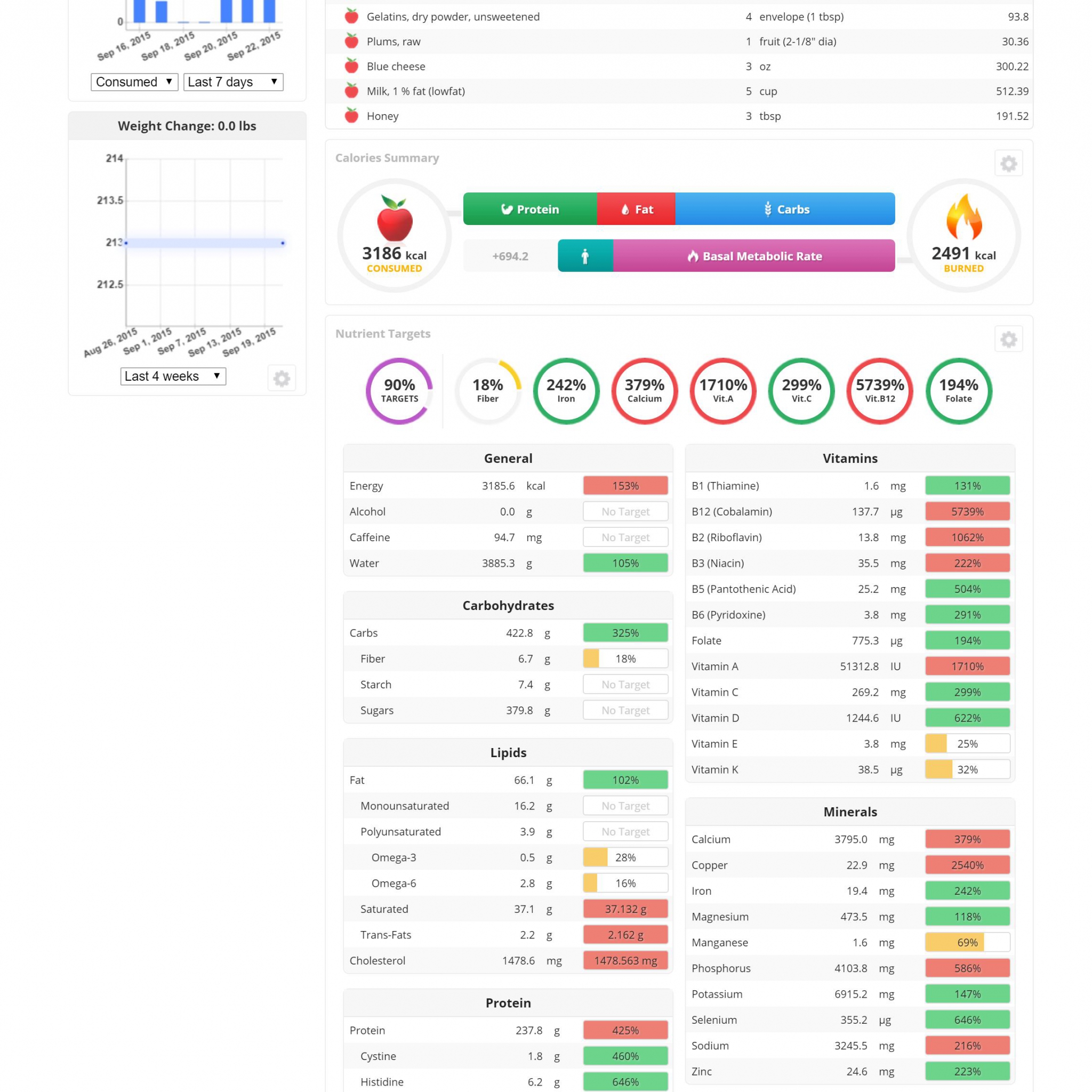barbwirehouse
Member
- Joined
- Jan 3, 2015
- Messages
- 163
Hey, I plugged in a typical peat diet on cronometer, and these are the results.

What should I eat to fix these deficiencies?

What should I eat to fix these deficiencies?




